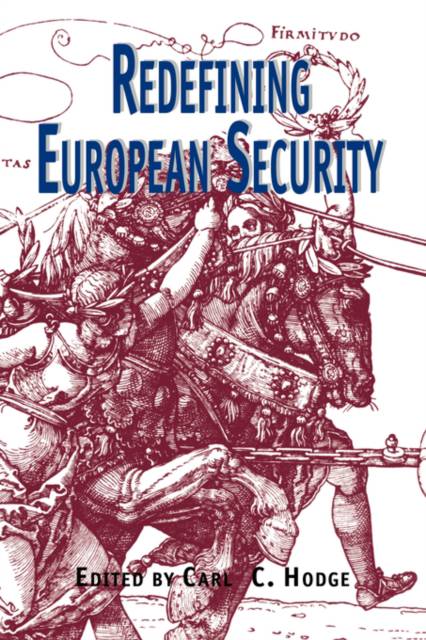
- Afhalen na 1 uur in een winkel met voorraad
- Gratis thuislevering in België vanaf € 30
- Ruim aanbod met 7 miljoen producten
- Afhalen na 1 uur in een winkel met voorraad
- Gratis thuislevering in België vanaf € 30
- Ruim aanbod met 7 miljoen producten
Zoeken
Omschrijving
Redefining European Security is a collection of essays concerned with changing perspectives on peace and political stability in Europe since the end of the Cold War, in both the hard security terms of military capacity and readiness and in the realm of soft security concerns of economic stability and democratic reform. European governments, the European Union, and the North Atlantic Treaty Organization are dealing with the fundamental problem of determining the very parameters of Europe, politically, economically, and institutionally. This book defines security as the efforts undertaken by national governments and multilateral institutions, beginning with the end of the Cold War and the reunification of Germany, to continue to protect European populations from acts of war and politically-motivated violence in light of the dissolution of the imminent political threat posed to Western Europe by the Soviet Union, 1945-1991 Together these essays assess the progress made in Europe toward preventing conflict, as well as in ending conflict when it occurs, after the abrupt passing of a situation in which the source and nature of a conflict were highly predictable and the emergence of new circumstances in which potential security threats are multiple, variable, and difficult to measure. Contemporary Europe is a mixture of old and new, of arrested and accelerated history. Europe's governments and institutions have been only partly successful in meeting new security challenges, to a high degree because of failing unity and political will. Yesterday, Europe only just avoided perishing from imperial follies and frenzied ideologies, wrote the late Raymond Aron in 1976, she could perish tomorrow through historical abdication.
Specificaties
Betrokkenen
- Auteur(s):
- Uitgeverij:
Inhoud
- Aantal bladzijden:
- 300
- Taal:
- Engels
- Reeks:
- Reeksnummer:
- nr. 4
Eigenschappen
- Productcode (EAN):
- 9780815327929
- Verschijningsdatum:
- 1/08/1999
- Uitvoering:
- Paperback
- Formaat:
- Trade paperback (VS)
- Afmetingen:
- 154 mm x 229 mm
- Gewicht:
- 517 g

Alleen bij Standaard Boekhandel
+ 210 punten op je klantenkaart van Standaard Boekhandel
Beoordelingen
We publiceren alleen reviews die voldoen aan de voorwaarden voor reviews. Bekijk onze voorwaarden voor reviews.







